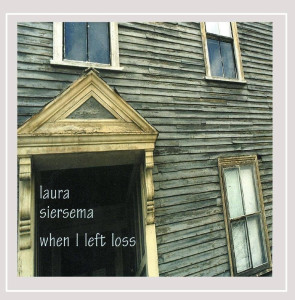 Rebecca Swain wrote this review for Folk Tales.
Rebecca Swain wrote this review for Folk Tales.
This album reminds me of open mic night at the local coffeehouse. This is not meant as a criticism, but as an attempt to define the atmosphere of the CD. Siersema accompanies herself on piano on the songs, and she recites poetry between some of the tracks, giving her performance a more casual, intimate feel than most CDs have.
There are 20 tracks on this album, 14 songs and 6 poems. A seventh poem, “Train,” is printed in the lyrics booklet but does not appear on the album. Siersema wrote all the songs except four: the standards “Where Have All the Flowers Gone?” “The Water is Wide,” and “All the Pretty Little Horses”; and “Seven Daffodils,” written by Fran Moseley and Lee Hays. Siersema recites poems between songs. Each poem has a connection to the song following it.
Siersema graduated from Berklee College of Music, where she took classes in songwriting and piano. She also took classes in voice from the New England Conservatory. She is a lovely singer with a high, sweet, quite attractive voice.
However, she doesn’t show off or take chances with her voice; she doesn’t try to hit difficult notes or infuse her voice with excess emotion. For example, she sings “January 17th,” about a mugger, with the same gentle sweetness she uses for “Seven Daffodils,” the only love song on the disc. For this reason it is important to study the lyrics in the CD booklet to get an idea of the meaning and mood of each song. She expresses more emotion when reciting her poetry, especially “Provoked,” about a young girl breaking free of the critical constraints of her family.
The songs themselves are often bleak, but usually moving, focusing mostly on alienated, lonely people. “Old Rustburg Road” tells of an old woman who decides she has lived long enough, and dies. “This Old House” is a poignant look at a person who feels she has found in the house of strangers the happiness she missed in her own life. “Close to Christmas” describes a young boy who struggles with the loss of his father just before the holiday.
Siersema writes some of her songs totally or partially in the third person, distancing herself from the characters so that the album does not take on the attitude of a confessional work. She seems to be trying to imagine life as other people live it. Perhaps the mood or some of the experiences are hers, and maybe she knows people like the characters she creates, but the album has a refreshing air of not being totally self-centered.
Overall, this is a pleasant, sincere work. The lyrics indicate that this is an album that is to be actively listened to, paid attention to, but I find that it also works as background music. Siersema’s voice is soothing, and the songs sound enough alike not to be distracting, though there is much to be discovered with careful listening. It is an excellent choice for people who like acoustic singer-songwriters.
(Laura Siersema, 1999)
